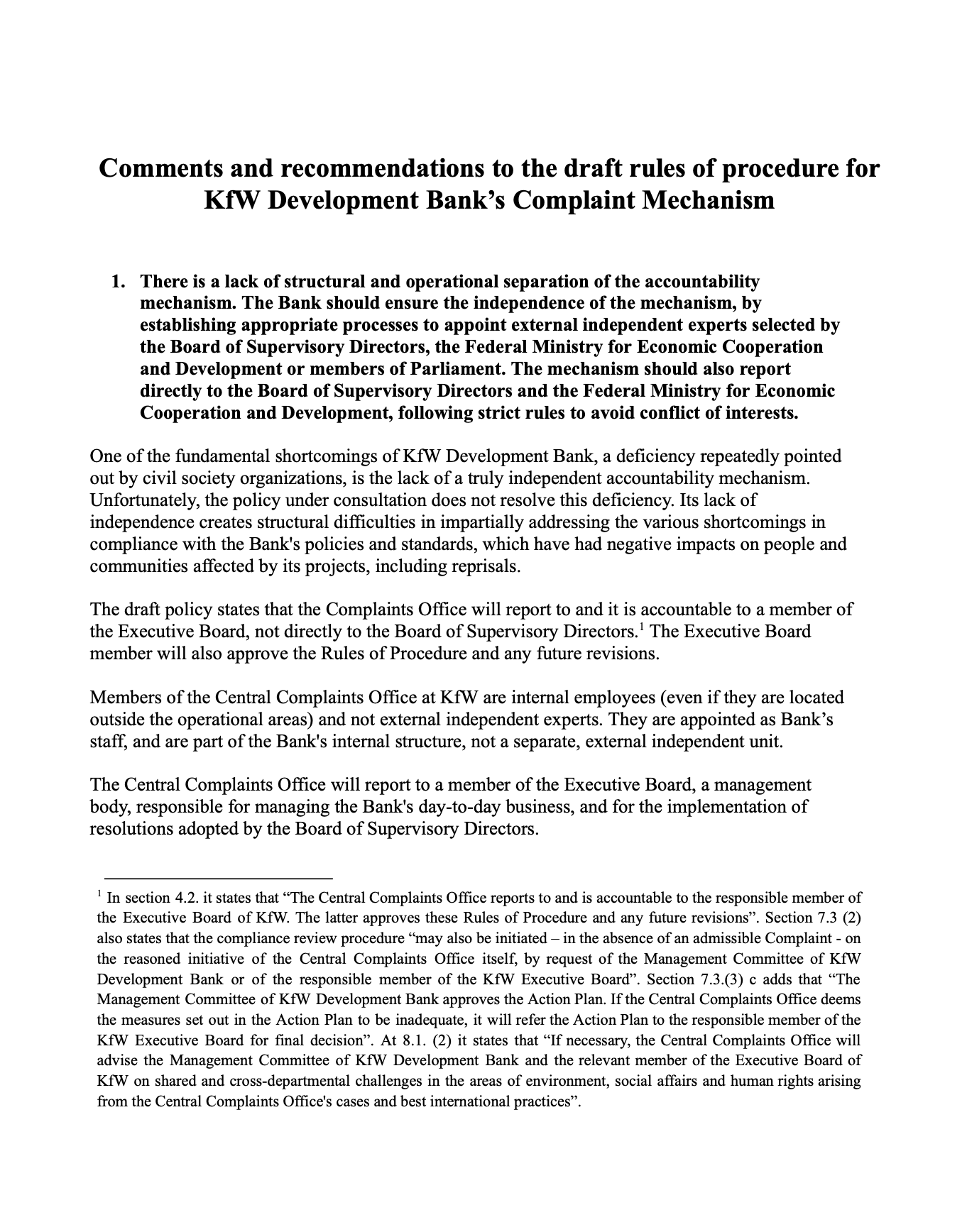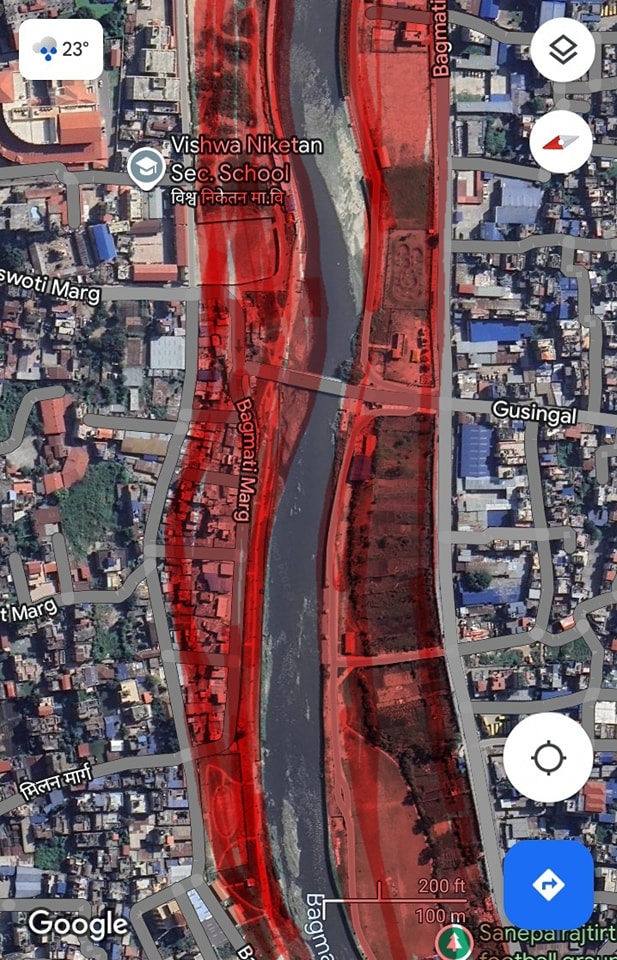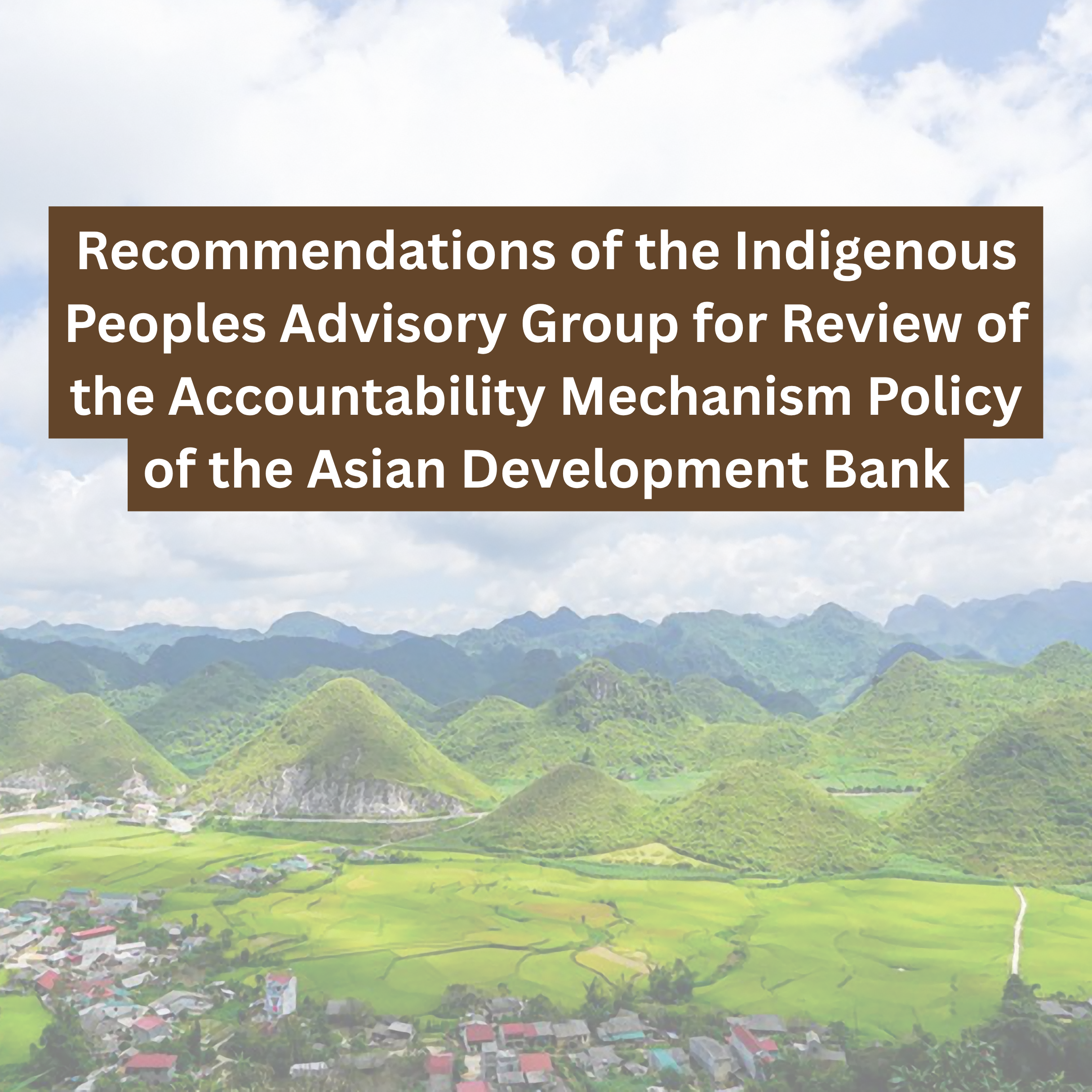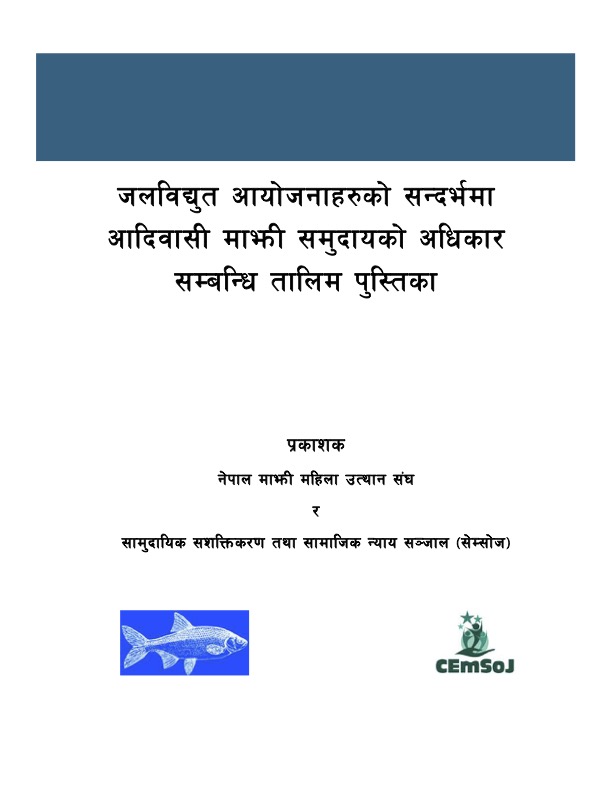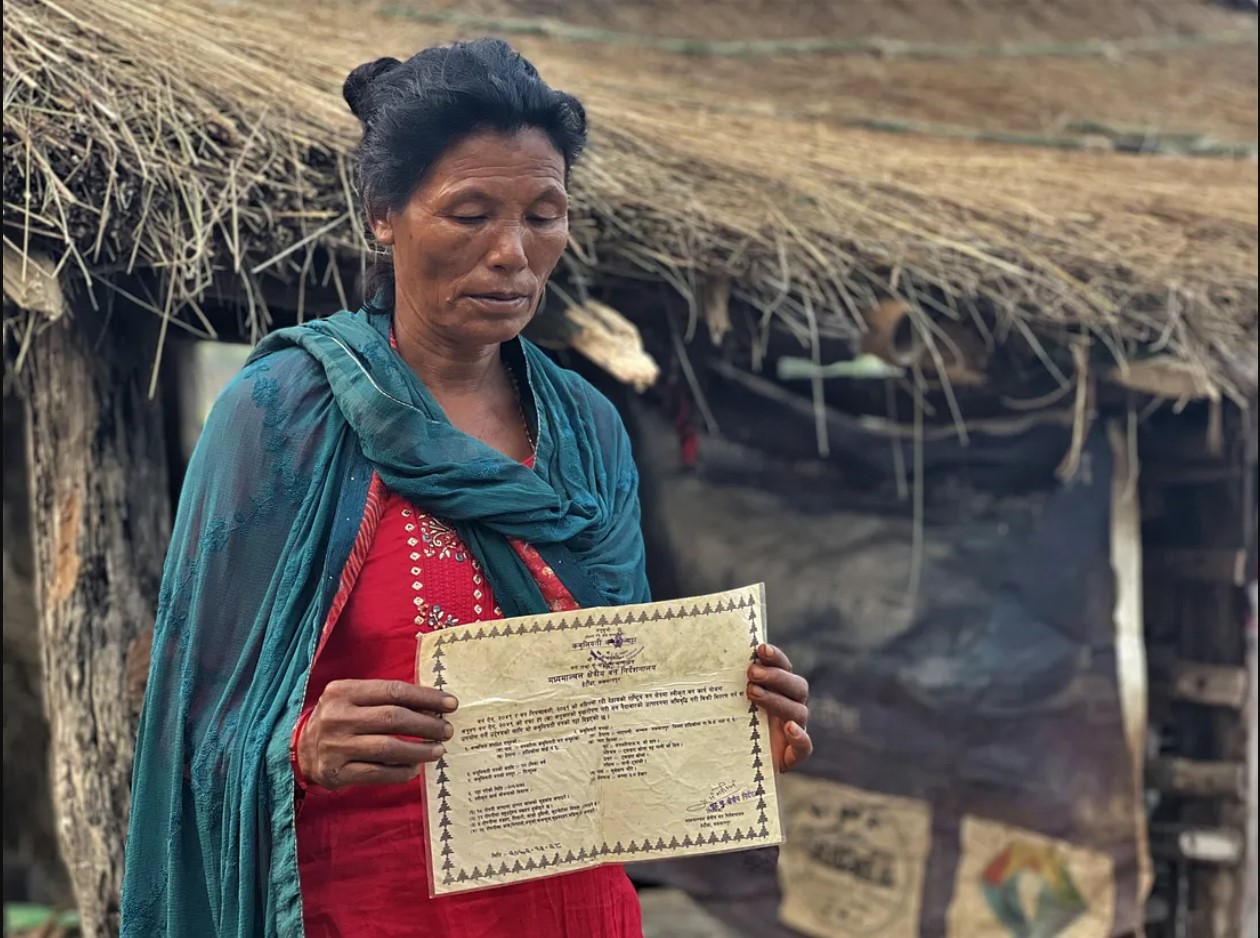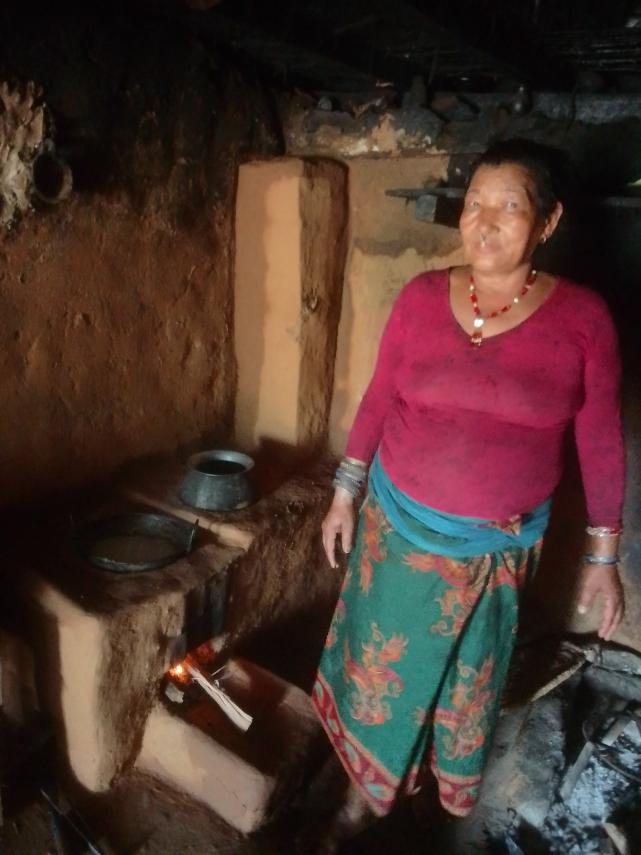On 6 February 2026, CEMSOJ, Defenders in Development campaign and others submitted their recommendations to the draft rules of procedure for KfW Development Bank’s Complaint Mechanism, based on the concerns that emerged in the analysis “KfW: Irresponsible Banking” (September 2025). The submission highlights serious concerns about the lack of independence, effectiveness, and accessibility of KfW Development Bank’s proposed Complaint Mechanism.
more “Recommendations to the draft rules of KfW Development Bank’s Complaint Mechanism”Category: Climate Justice Initiative
Indigenous Newa and other communities file complaint with the Asian Development Bank over its financing for projects related to Bagmati and other river corridors
Indigenous Newa and other locals affected by Bagmati and other river corridors across Kathmandu valley have filed a complaint to the Asian Development Bank (ADB) regarding violations of its safeguards in the Bagmati River Basin Improvement Project and other associated projects it finances related to the river corridors.
In a letter submitted to the ADB’s Nepal resident mission on Thursday, representatives of the committees of those affected by the no-construction and buffer zones imposed along the banks of the Bagmati river and its tributaries have called on the ADB for immediate actions to resolve their grievances in relation to the impacts faced by and concerns of the communities along the river corridors, including the following:
more “Indigenous Newa and other communities file complaint with the Asian Development Bank over its financing for projects related to Bagmati and other river corridors”Recommendations of the Indigenous Peoples Advisory Group for Review of the Accountability Mechanism Policy of the Asian Development Bank
July 16 2025
We, members of Indigenous Peoples of Asia and the Pacific, Indigenous rights defenders, and representatives of Indigenous Peoples Organizations, having engaged in the ongoing review of the Accountability Mechanism (AM) Policy (2012) of the Asian Development Bank (ADB) through the Indigenous Peoples Advisory Group (IPAG) present the following preliminary recommendations for the Policy review.
more “Recommendations of the Indigenous Peoples Advisory Group for Review of the Accountability Mechanism Policy of the Asian Development Bank”जलविद्युत आयोजनाहरुको सन्दर्भमा आदिवासी माझी समुदायको अधिकार सम्बन्धि तालिम पुस्तिका
वि.सं. २०८१ चैत १५
जलविद्युत आयोजनाहरुको सन्दर्भमा आदिवासी माझी समुदायको अधिकार विषयक यस तालिम पुस्तिकाले आदिवासी माझी समुदायलाई सशक्त बनाउनको लागि एक बृहत् स्रोतको रुपमा काम गर्ने उद्देश्य लिएको छ । यसले जलविद्युत परियोजनाहरूको प्रभावको सन्दर्भमा समुदायको अधिकारको वकालतको लागि जनचेतना अभिबृद्धि र क्षमता विकासको लागि तत्काल रहेका आवश्यकताहरूलाई सम्बोधन गर्ने लक्ष्य राखेको छ । यो पुस्तिका माझी समुदायका अगुवा, अधिकार प्रतिरक्षक र अन्य मानवअधिकार तथा आदिवासी अधिकार प्रतिरक्षकहरूलाई सुनकोशी–३ र दुधकोशी जलविद्युत आयोजनाहरूको सम्बन्धमा बुझाई वृद्धि, अन्तर्राष्ट्रिय र राष्ट्रिय कानून अन्तर्गत आदिवासी जनजातिको अधिकारको प्राविधिक ज्ञान, व्यवहारिक वकालत, तालिम र जनचेतना अभिबृद्धिका लागि सीप विकासमा सहयोग गर्न तयार पारिएको छ ।
more “जलविद्युत आयोजनाहरुको सन्दर्भमा आदिवासी माझी समुदायको अधिकार सम्बन्धि तालिम पुस्तिका”Displaced and Landless: Endangered Indigenous Bankariya living in the buffer zone of Parsa National Park in Nepal
This summary report aims to analyze the human rights challenges of Nepal’s endangered Indigenous Bankariya people, particularly to their lands and forest resources, due to Parsa National Park in the south of the country. Traditionally a nomadic group living in forests, Bankariyas were provided six hectares of leasehold forests, where they currently live in informal settlements. The leasehold forests were later incorporated in the buffer zone of the Parsa National Park. Almost two decades later, Bankariyas now face the same challenge as around 6 million people of 34 districts living in buffer zones of various protected areas of Nepal. They do not have titles to the lands that they have been living on, using or occupying for generations. As a result, they face threats of forced evictions and displacement from their current settlement upon expiry of their lease and in lack of land titles.
more “Displaced and Landless: Endangered Indigenous Bankariya living in the buffer zone of Parsa National Park in Nepal”Indigenous Peoples voice concerns on the revised Environmental and Social Framework of the Asian Development Bank
“Without strong safeguards, ADB-financed projects will continue to adversely impact Indigenous Peoples lands, livelihoods, and ways of life”
The Indigenous Peoples Advisory Group (IPAG) issued a statement urging the Asian Development Bank (ADB) to strengthen protections for Indigenous Peoples in the recently released revised ADB Environmental and Social Framework, now open for public consultation. Although IPAG welcomed certain improvements, including the integration of Free, Prior, and Informed Consent (FPIC) in certain ADB-financed projects and a separate section on Cultural Heritage, the group argues that the revisions fall short of adequately safeguarding Indigenous Peoples rights.
more “Indigenous Peoples voice concerns on the revised Environmental and Social Framework of the Asian Development Bank”Improved Cooking Stoves training provided and construction undertaken at Chyaurang village in Makwanpur
On 25 May 2024, CEMSOJ provided a training on construction and maintenance of Improved Cooking Stove to Indigenous Tamangs and Chepangs of Chyaurang, Saleni Taar and Sukhel villages of Raksirang rural municipality in remote hills of Makawanpur district in southern Nepal. The Stoves are aimed to particularly benefit Indigenous women of the villages of Ward no. 9 of the rural municipality.
more “Improved Cooking Stoves training provided and construction undertaken at Chyaurang village in Makwanpur”Case Study: Tourism and Indigenous Peoples’ Rights in Nepal
Tourism industry plays and can further play a significant role for Nepal’s economy and prosperity, including in terms of environmental conservation. However, the industry has often entrenched marginalization of Indigenous Peoples in the country and resulted in violations of their rights, including in the context of establishment of protected areas, tourism establishments and businesses as well as representation of Indigenous image.
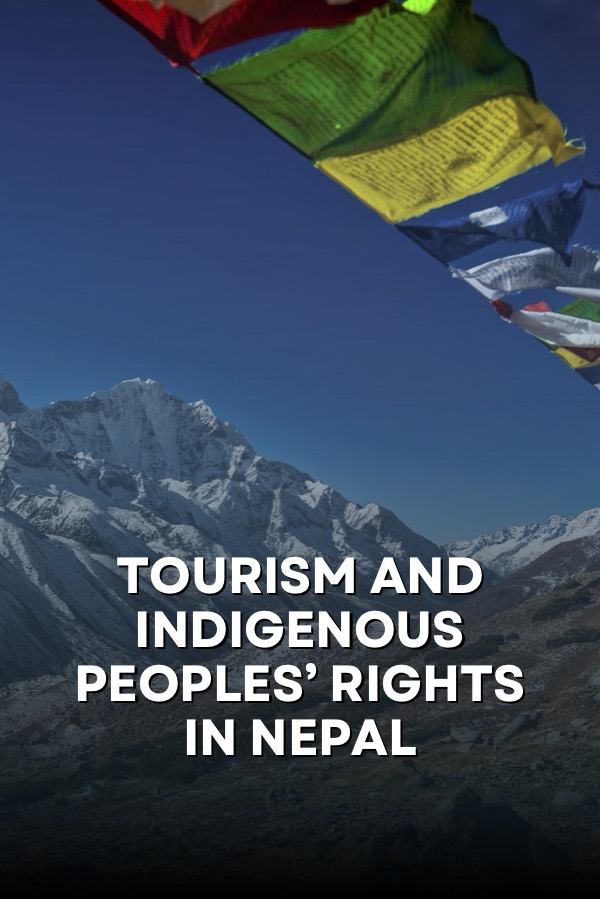
On many occasions, Indigenous Peoples have suffered loss of traditional lands and other violations of their rights in favor of tourism projects, which directly affects their lives and livelihoods. Particularly relevant is the establishment of protected areas, which have been mostly created by displacing Indigenous communities from their lands and resources. Concerningly, Indigenous communities have even been subjected to wide range of abuses, including killings, torture, arbitrary detentions, mistreatment, harassment as well as sexual violence against women at the hands of army, forest rangers and others in the context protected areas set up for environmental conservation and tourism.
Tourism establishments and business have also encroached upon lands and sacred sites of Indigenous communities in various parts of Nepal. Indigenous defenders and activists have faced retaliations and reprisals for raising their voices against violations of their rights and those of their communities in the context of such tourism undertakings, including at the hands of businesses.
more “Case Study: Tourism and Indigenous Peoples’ Rights in Nepal”Tamakoshi V Hydroelectric Project: Early Warning Case Study
This case study on the Tamakoshi V Hydroelectric Project aims to analyze the impacts of the Project during its early stages of implementation in order to identify potential gaps in the accountability framework for the Project in line with the policies of its financier Asian Infrastructure Investment Bank (AIIB) as well as wider impacts of the Project in the context of cumulative impacts of the cascade dams being built or planned in the Tamakoshi River. Further, the case study seeks to look into the Project to determine if it is in line with the environmental sustainability and fiscal stability of Nepal.
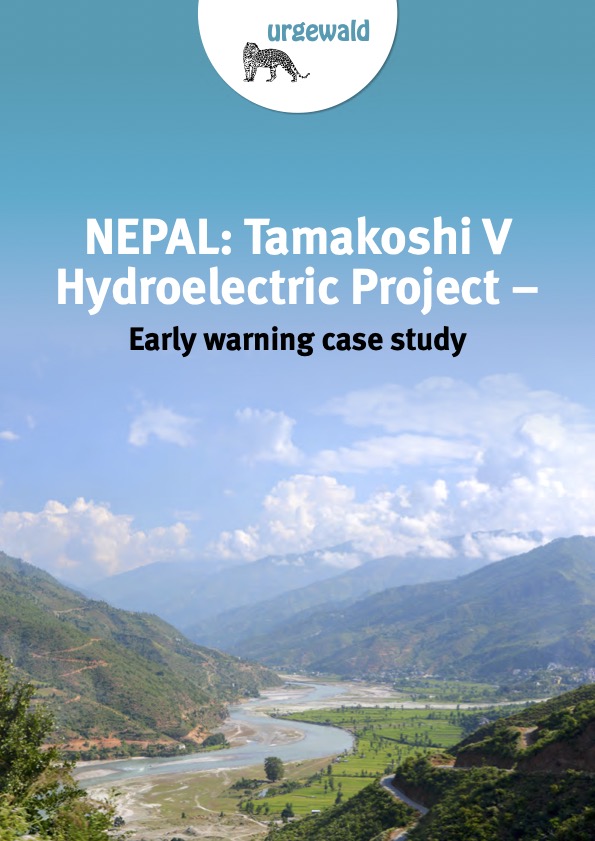
The case study calls for calls for serious reassessment of the Project on the grounds of outdated feasibility study and inadequate information disclosure, lack of participation and consent of the affected communities, and potential cumulative environmental harms, among other concerns. It is based on desk review of the official Project documents, relevant policies of the AIIB and laws and policies of Nepal as well as media, governmental and non-governmental reports on the Project and other associated projects. While CEMSOJ has made initial efforts to reach out to the affected communities of the Project to understand their perspectives of and aspirations with the Project at the ground level, lack of such information gathered so far poses a major limitation for this study . In order to address that, it is planned that this study will later be complemented by field visits to the affected communities.
more “Tamakoshi V Hydroelectric Project: Early Warning Case Study”Nepal’s Supreme Court directs the government to make legal, policy and implementation arrangements in line with Paris Agreement on climate change
Nepal’s Supreme Court has issued a directive order to the Government to make legal, policy and implementation arrangements in line with the 2015 Paris Agreement on climate change (also referred to as the Paris Climate Accords).
In its decision made dated 27 April on the public interest litigation filed by CEMSOJ, the Supreme Court ruled issued a directive order in the name of the Government to make necessary legal, policy and implementation arrangements in compliance with the commitments of international treaties and conventions, including the Paris Agreement, to conserve the environment, to sell, trade or consume forest products, including carbon, to arrange a fair distribution system of benefits.
more “Nepal’s Supreme Court directs the government to make legal, policy and implementation arrangements in line with Paris Agreement on climate change”